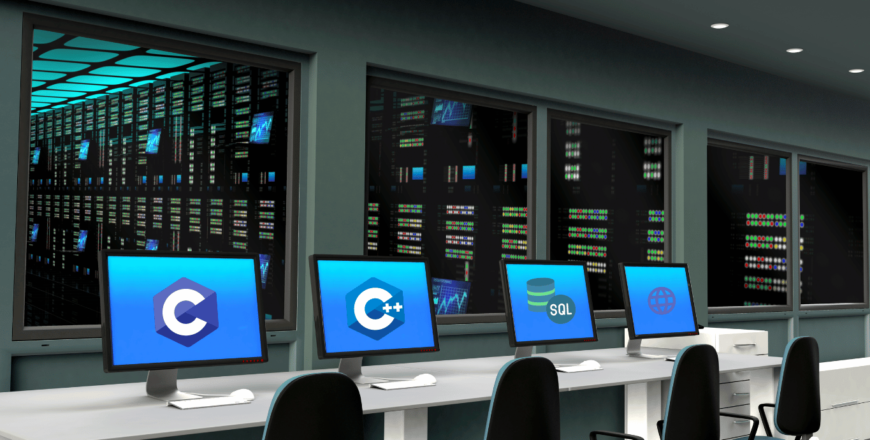Software Development in C and C++

C is a general-purpose procedural programming language that was designed to build operating systems. C is a complier-based programming language unlike other languages like Python and Java that are interpreter based. C++ is an extension of C language, it’s a combination of procedural and object-oriented programming language. C++ was built upon C and hence all the features of C and available in C++ along with additional features.
A Data Structure is a named storage location that can be used to store and organize data such that the data can be processed and retrieved in an efficient manner.
SQL stands for Structured Query Language. SQL is used to communicate with the Database in Relational Database Management system. Using SQL the user can make updates to the Database, retrieve desired information from the Database and also manipulate and organize data in the Database.
Why you should enroll for this course?
- C programming language is recommended to beginners
- Programs coded and complied using C programming language can be executed very quickly and consume lesser memory as compared to other programming languages.
- Various professional projects like operating systems, browsers, compilers, data base and cloud storage systems are built using C/C++.
- Knowledge of Data Structures helps the programmer to build efficient and optimized software program.
- Learning Data Structures helps the programmer select the correct Data Structure based upon the set of operations the programmer intends to perform on the data.
- SQL is used to extract data from large data sets in programming languages.
Introduction to C
Flow Control
Functions
Arrays
C Pointers
Introduction to C++
Flow Control
Functions
Structures
Arrays and Strings
Object and Class
Inheritance
Object-Oriented Programming
Data Structures and Algorithms
SQL
• Software Developer/Engineer: Create, test, and maintain software applications using C and C++ languages.
• System Programmer: Develop and maintain system-level software using C and C++.
• Embedded Systems Developer: Work on developing software for embedded systems and IoT devices, where C and C++ are widely used.
• Game Developer: Build interactive and engaging games by leveraging the powerful features of C++.
• Firmware Developer: Design and implement firmware for devices and systems using C and C++.
• Application Developer: Develop desktop and server applications using C and C++ for various platforms.
• Database Developer: Create software to interact with and manage databases efficiently.
• Quality Assurance Engineer: Ensure the quality and reliability of software by testing and debugging code.
• Problem-Solving Abilities: Learn to solve complex problems and develop logical thinking skills, crucial for software development.
• Versatility: C and C++ are versatile languages used in diverse domains, offering you flexibility in choosing your career path.
• Industry Relevance: Mastering these languages makes you attractive to industries like gaming, embedded systems, and system programming where C and C++ are prevalent.
• Foundation for Advanced Concepts: C and C++ serve as a stepping stone for learning more advanced programming concepts and languages.



